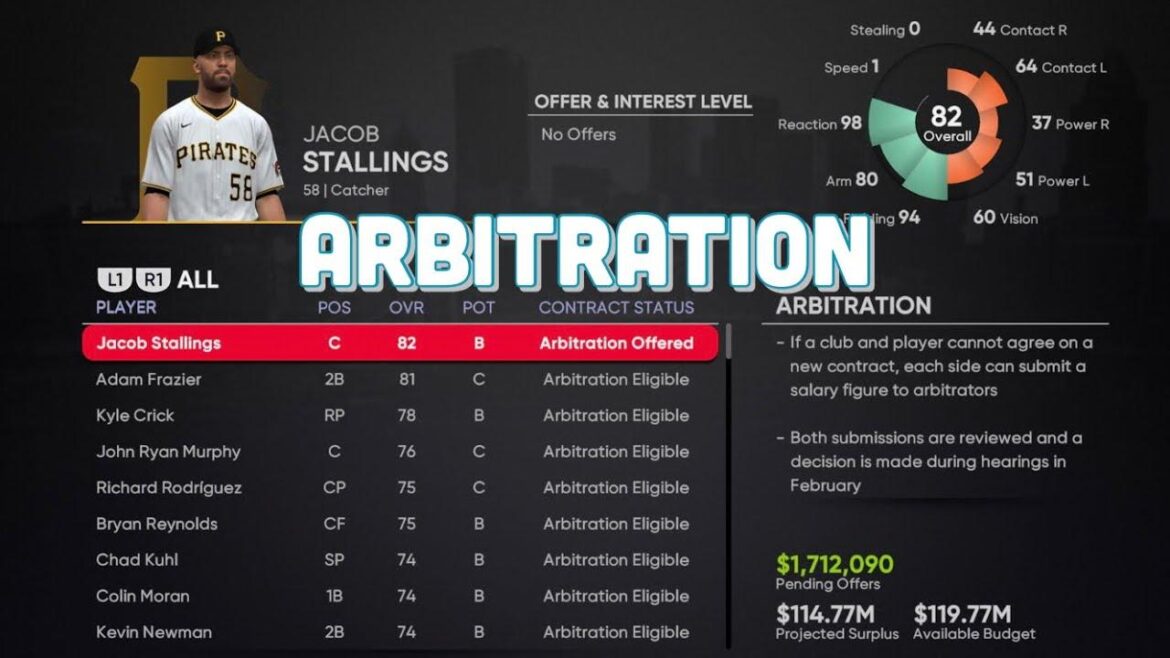In the world of Major League Baseball, the pulse of the offseason often beats with the rhythm of salary arbitration, a critical process that allows players to negotiate their earnings based on performance and market value. As teams and players gear up for this pivotal moment, eyes are on a new generation of talent poised to make their mark. Among the notable youngsters eligible for arbitration this year are Mason Miller and Zach Neto, rising stars whose impressive performances have caught the attention of fans and analysts alike. This article delves into the implications of their arbitration cases, the broader landscape of salary negotiations, and what it means for teams navigating the balance between budgeting and talent retention in an increasingly competitive league.
Mason Miller and Zach Neto Lead the Charge in MLB Salary Arbitration Proposals
Mason Miller and Zach Neto have emerged as pivotal figures in this year’s MLB salary arbitration landscape, drawing attention for their impressive skill sets and potential value as young players. The arbitration process, designed to bridge the gap between player and team expectations regarding salary, could see both players making significant strides in their earnings. Miller, a standout pitcher with a fierce fastball, and Neto, a versatile infielder, are both looking to leverage their early successes and contributions to their respective teams in negotiations that could redefine their financial futures.
The stakes are high as the players’ performance metrics and career trajectories will be heavily scrutinized during this arbitration period. With teams scrutinizing every dollar spent, the bargaining chips include:
- Career Statistics: Highlighting key performance indicators.
- Injury History: Potential risks associated with each player.
- Future Projections: Expectations based on current trends and scouting reports.
Both Miller and Neto represent a new wave of talent in the league, and as they navigate the arbitration landscape, they will not only influence their financial outcomes but also set a benchmark for other young players eyeing lucrative contracts. Their cases may serve as a litmus test for how teams value emerging talent as the nature of MLB contracts continues to evolve.
- Advertisement -
Key Considerations for Teams Navigating Young Talent Contract Negotiations
As teams assess their young talent during contract negotiations, several factors emerge that can significantly influence the outcome. First, performance history holds critical weight; teams must analyze not only statistics but also the trajectory of a player’s development over recent seasons. Additionally, the market landscape is crucial; understanding comparable contracts among peers can provide a benchmark that informs negotiations. Teams should consider the player’s agent as well, as experienced representatives can effectively advocate for lucrative contracts that reflect a player’s value.
Another vital consideration is the long-term implications of any agreement. Teams ought to evaluate the financial flexibility that each negotiation brings, factoring in potential salary escalations and the player’s role within the organization. Keeping an eye on upcoming free agency periods can help teams strategize not just for the immediate season but also for future roster construction. By ensuring a balance between current player compensation and future expenditures, teams can foster a commitment to developing young talents while maintaining the competitive edge.
Impact of Emerging Stars on Future Arbitration Strategies in Major League Baseball
The emergence of young talents like Mason Miller and Zach Neto is poised to reshape the landscape of salary arbitration in Major League Baseball. As teams increasingly rely on analytics and scouting to identify promising players, these young stars exemplify the evolving skill sets that could shift arbitration strategies. Teams may find themselves negotiating with players who have established significant performance levels early in their careers, often ahead of traditional timelines. This generates a dual challenge of balancing competitive salaries while managing future budget constraints.
Furthermore, the impact of these emerging players extends beyond individual contracts, influencing the entire arbitration process across the league. Key factors such as performance metrics, emerging statistical trends, and market assessments are likely to become focal points in negotiations. As teams adapt their approaches, they may also invest more heavily in minor league systems and analytics departments to identify and nurture similar talents regularly. This strategic pivot could lead to a more robust talent pipeline, ultimately affecting how teams structure their financial commitments in an ever-competitive landscape.
- Advertisement -
Final Thoughts
In conclusion, as Major League Baseball’s salary arbitration season approaches, the spotlight shines brightly on emerging talents like Mason Miller and Zach Neto. These young players not only represent the future of their respective teams but also illustrate the shifting dynamics within the league, where performance and potential increasingly dictate financial negotiations. As the arbitration process unfolds, all eyes will be on how organizations value these promising athletes, setting precedence for the next generation of stars. With heightened scrutiny on player development and contract negotiations, the outcomes will undoubtedly have ramifications that echo throughout the sport. As fans and analysts alike eagerly anticipate the decisions ahead, the landscape of MLB salary arbitration promises to offer intriguing narratives as it evolves. For both players and teams, it is a crucial moment on the path towards establishing long-term success in America’s pastime.


